The population across Middle Eastern countries continues to grow steadily, along with a rising average life expectancy. As a result, the demand for healthcare services, especially for chronic diseases, is naturally increasing. In particular, the prevalence of obesity, diabetes, and cardiovascular conditions ranks among the highest in the world. Countries such as Saudi Arabia, Kuwait, and the United Arab Emirates (UAE) report obesity rates reaching 30–40%. Against this backdrop, the healthcare industry in the Middle East is seeing a rapid surge in demand for efficient blood testing, highly accurate diagnostic technologies, and advanced molecular diagnostics.
Saudi Arabia, the United Arab Emirates (UAE), and Kuwait are all actively pursuing healthcare modernization under government-led initiatives, with significant investments being made to upgrade their medical infrastructure. There is a growing demand for cutting-edge medical technologies, including advanced diagnostic devices, imaging equipment, and mobile healthcare solutions. Reflecting this trend, the medical device markets in these countries are experiencing rapid growth, with an average annual increase of 7–10%.
Rapidly Growing Demand for Blood Diagnostics in Kuwait’s Healthcare Landscape

Source: Shutterstock
Kuwait is among the countries with the highest prevalence rates of diabetes, hypertension, hyperlipidemia, and obesity worldwide. As a result, there is a significant demand for blood-based diagnostics such as liver and kidney function tests, lipid profiles, Complete Blood Count (CBC), and HbA1c. Additionally, all foreign workers and new arrivals to Kuwait are required to undergo comprehensive health screenings—including tests for malaria, hepatitis B, and HIV—further driving the rapid increase in nationwide demand for blood testing.
As part of its national Vision 2035 initiative, Kuwait is actively transitioning toward a healthcare system focused on early diagnosis. With the growing demand for blood-based diagnostics, the government is prioritizing efficient blood testing solutions. In response, private diagnostic centers and smaller hospitals are increasingly expanding telemedicine services to manage the overwhelming demand. Meanwhile, public hospitals—aligned with healthcare modernization policies—are aggressively adopting advanced diagnostic equipment, including 3-part and 5-part CBC analyzers and digital peripheral blood slide analysis systems.
Kuwait Healthcare Institutions Responding to the Surge in Blood Test Demand
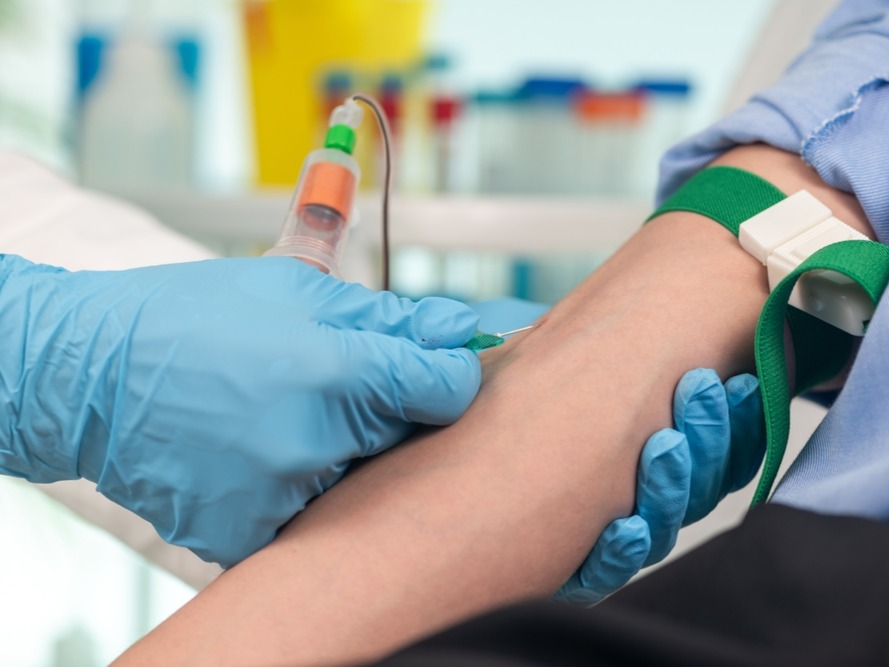
Source: Shutterstock
Blood testing is routinely conducted as a standard diagnostic procedure across all hospitals and clinics in Kuwait. It is considered an essential tool in every area of medical care—including outpatient visits, emergency services, inpatient care, pre- and post-surgical evaluations, and general health checkups. Below is an overview of how blood testing is managed across different types of healthcare institutions in Kuwait.
Public Hospitals
- Public hospitals in Kuwait are equipped with advanced diagnostic devices such as 5-part CBC analyzers, automated ESR measurement systems, and slide preparation/staining equipment.
- In addition to conventional manual microscopy, digital slide analysis systems are being increasingly adopted to improve the accuracy of blood morphology evaluations.
- Since public hospitals provide care for outpatient, emergency, and inpatient services, they handle a significantly high volume of blood specimens.
Private Hospitals and Diagnostic Centers
- These facilities primarily operate with small to mid-sized automated hematology analyzers, typically 3-part or 5-part models.
- While they process fewer samples compared to public hospitals, they maintain a higher turnaround rate.
- However, due to relatively underdeveloped infrastructure, most of these institutions rely on external laboratories for more complex or detailed diagnostic tests.
Foreign Worker Health Screening and Immigration Clinics
- These clinics perform large volumes of CBC, malaria, and hepatitis tests, with the entire process from sample collection to reporting required to be completed within 1–2 days.
- However, most facilities are equipped only with compact 3-part CBC analyzers, and blood smear readings are primarily done manually, with some outsourced to external labs.
- Approximately 1,000–1,500 tests are conducted daily across six immigration screening centers, leading to significant staff shortages.
- Notably, all malaria diagnoses are carried out through manual microscopy, requiring technicians to spend nearly 12 continuous hours at the microscope.
- This greatly increases the risk of human error and false negatives, underscoring the urgent need for an effective and automated diagnostic solution.
How Does miLab™ Solve Kuwait’s Blood Testing Challenges?
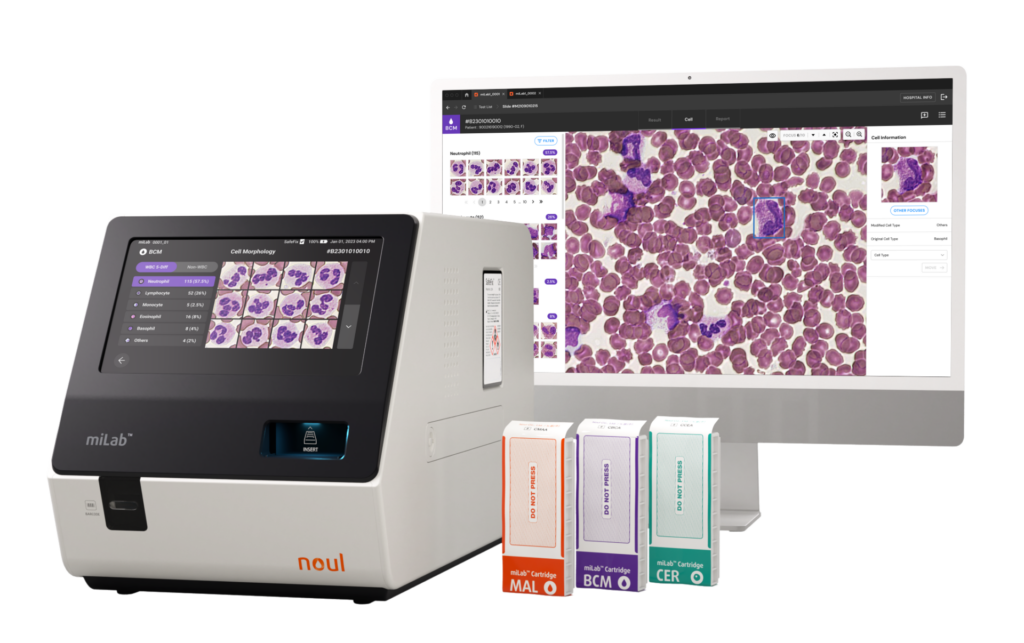
Source: noul
One of the most striking aspects of Kuwait’s current blood diagnostic landscape is that, despite rapidly increasing demand, most small and medium-sized hospitals still rely on manual slide preparation and microscopic examination after CBC. This operational approach leads to decreased consistency in readings and increased fatigue among specialized personnel, ultimately resulting in a decline in overall diagnostic quality.
To address the limitations of diverse healthcare environments and the growing demand for diagnostics, in April 2025, the Kuwait government decided to adopt NOUL’s AI-based blood testing system miLab™ BCM and malaria diagnostic system miLab™ MAL as part of the national screening program. One of the core strategies of Kuwait’s Vision 2035 is to build a high-quality healthcare system, and the government has actively pursued medical device procurement to achieve this, leading to this contract. NOUL’s automated diagnostic platform miLab™ is expected to serve as a key solution to realize Kuwait’s healthcare innovation goals by resolving existing diagnostic challenges and enhancing the quality of medical services.
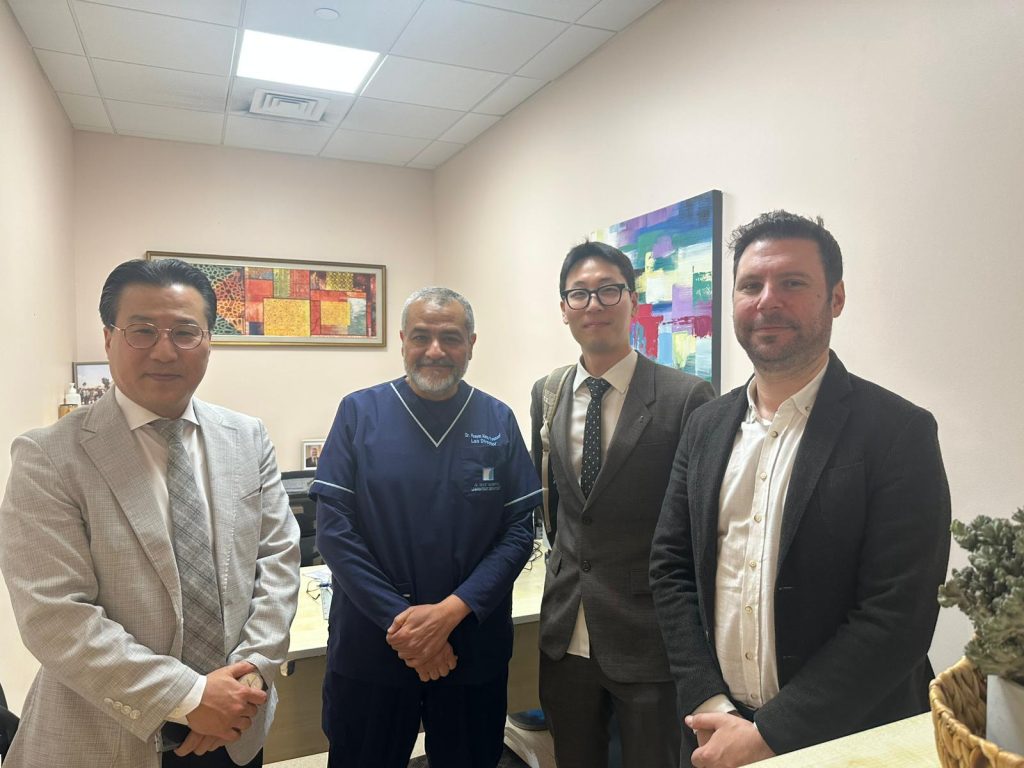
Source: noul
Through this contract, NOUL’s miLab™ platform is distinguished by its ability to fully automate the entire diagnostic process within a single cartridge, from sample staining to imaging and AI-based analysis. This automated system streamlines every step from sample preparation to result delivery, significantly enhancing workforce efficiency and enabling facilities to handle high testing volumes with ease. Moreover, its AI-driven, precise, and consistent analysis provides highly accurate diagnostic outcomes, positioning miLab™ as an innovative solution capable of making a meaningful impact on Kuwait’s healthcare landscape.
A Leap Forward in Kuwait’s Diagnostic Landscape: The Role of AI-Powered microscope
NOUL’s miLab™ incorporates solid-based staining technology, NGSI (Next Generation Staining & Immunostaining), and on-device AI to deliver accurate and rapid results—even within compact, resource-limited healthcare settings. Its compact size minimizes installation space requirements, making it ideal for hospital labs, clinics, and public health centers with spatial constraints. Thanks to its exceptional portability, miLab™ also performs seamlessly in Point-of-Care (PoC) environments, offering reliable diagnostics wherever they are needed most.
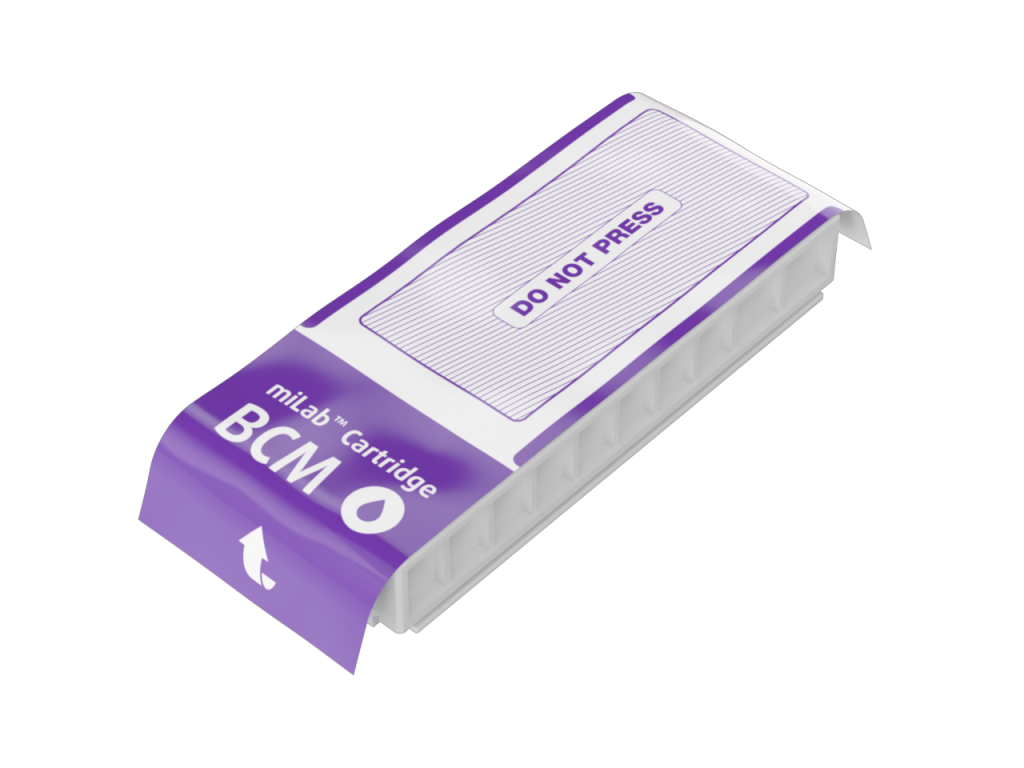
Source: noul
miLab™ BCM automates the entire blood testing process within a single cartridge, enabling consistent and precise diagnostics while significantly improving manpower efficiency. Even with high sample volumes, the system ensures high-quality results. By integrating Complete Blood Count (CBC) with Blood Morphology analysis, miLab™ BCM allows for immediate examination of abnormal blood cell forms detected during primary screening, supporting more accurate diagnoses. This on-site, end-to-end testing capability eliminates the need to outsource additional analyses to large laboratories, ultimately reducing costs and enhancing operational efficiency.
[miLab™ BCM Analysis Parameters]
miLab™ MAL is a malaria diagnostic system that was recognized by UNITAID in 2022 as “The Most Advanced Digital Microscope and Fully Integrated Bench-top Platform,” demonstrating its exceptional performance. Notably, it can distinguish between P. falciparum and P. vivax, supporting highly accurate diagnoses. In clinical evaluations, it achieved 100% sensitivity and specificity, positioning it as an innovative solution capable of significantly reducing malaria incidence.
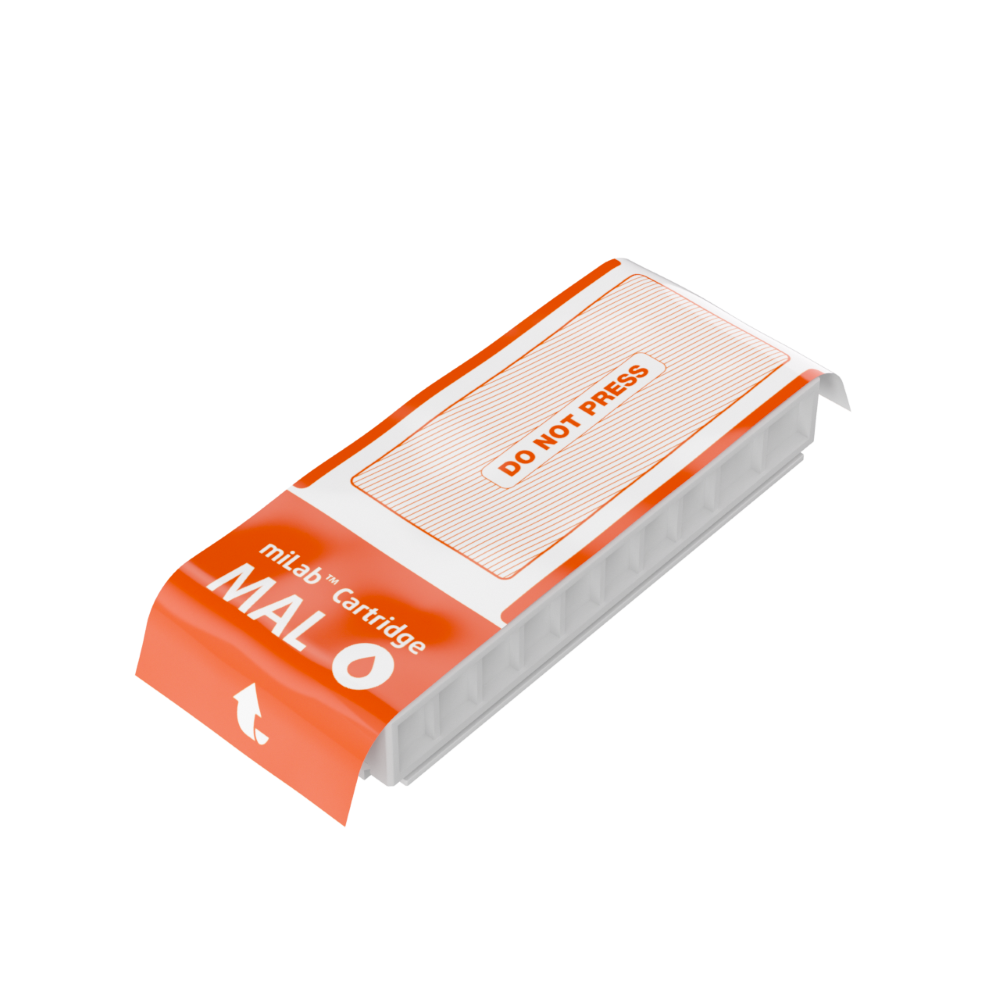
Source: noul
Due to the steady influx of imported infection cases—ranging from dozens to hundreds annually—all foreign entrants to Kuwait are required to undergo malaria testing. As previously mentioned, while diagnostic demand in Kuwait is high, limited infrastructure makes an efficient diagnostic system urgently necessary. NOUL’s miLab™ MAL, which fully automates the entire testing process within a single cartridge, is expected to significantly enhance manpower efficiency and deliver highly accurate results, making it an ideal solution tailored to Kuwait’s malaria diagnostic needs.

Source: Shutterstock
The medical device market in the Middle East is experiencing rapid growth, and in response, many countries in the region are actively adopting technologies to enhance workforce efficiency. Aligned with this trend, NOUL aims to expand beyond Kuwait and enter diagnostic markets across other Middle Eastern countries. The company hopes that its miLab™ platform will significantly improve healthcare environments throughout the region and deliver high-quality medical services to a broader population.
Explore how NOUL’s miLab™ platform is transforming diagnostics through automation, AI accuracy, and scalable efficiency. Click here to learn more about miLab™!

